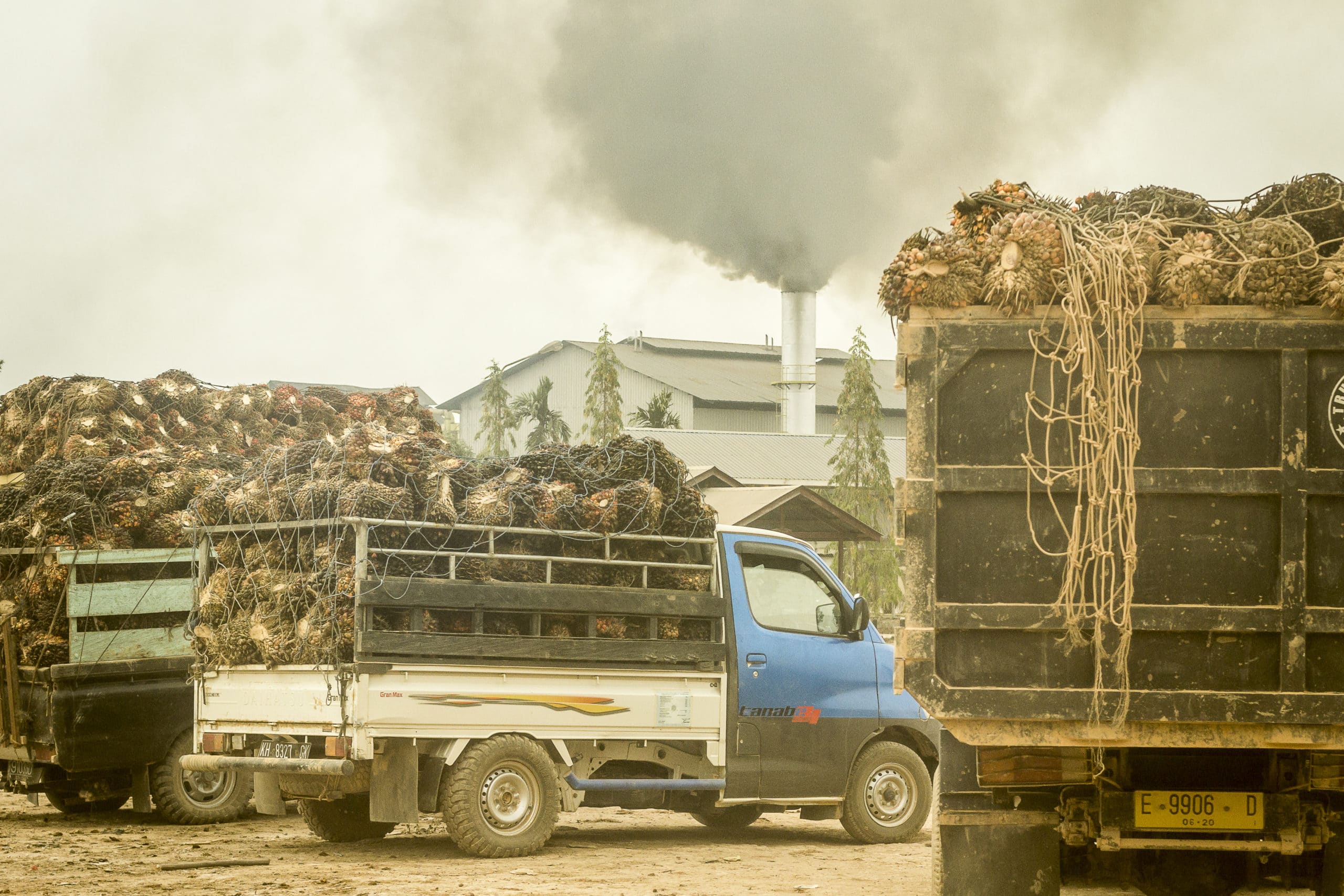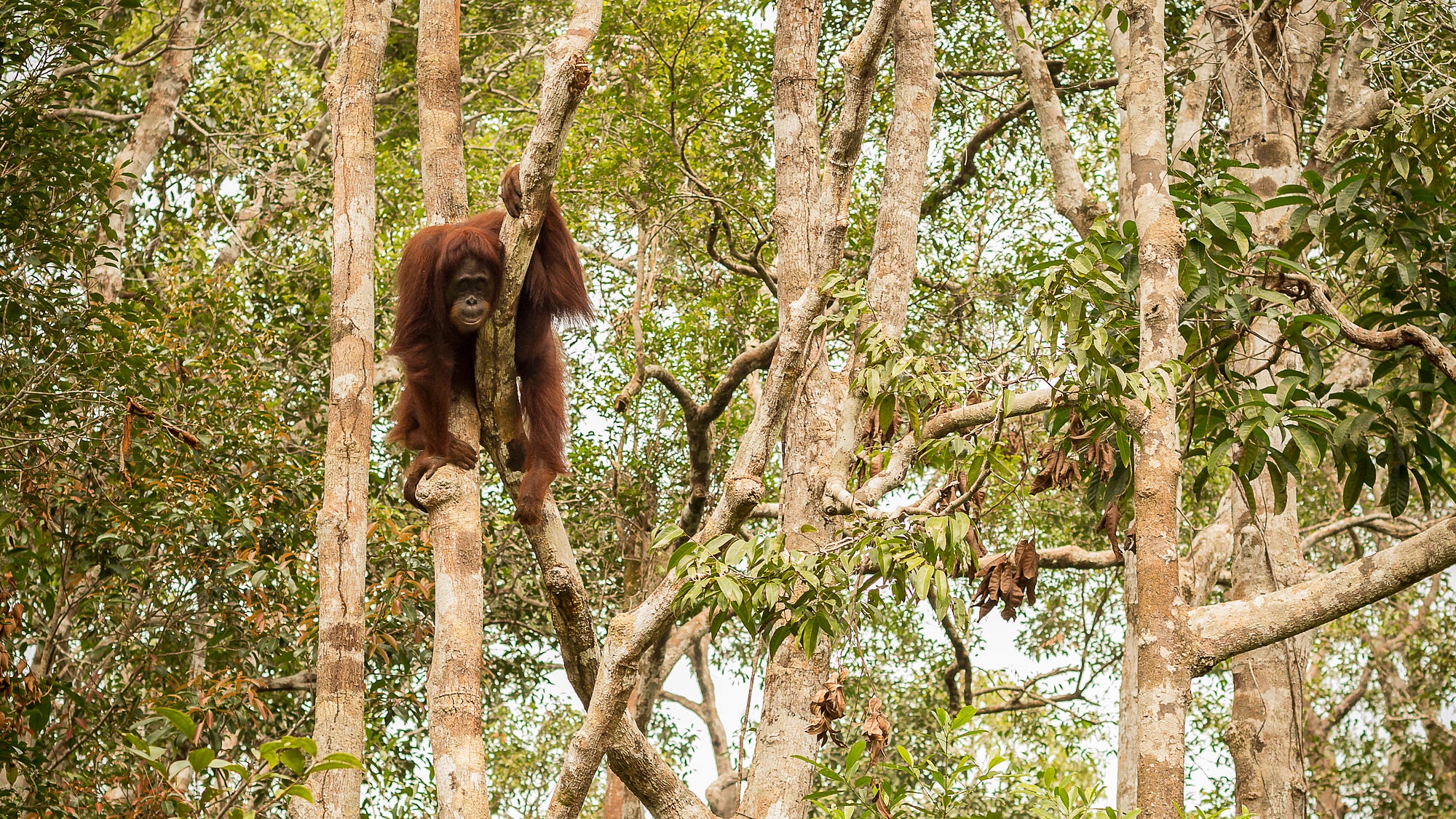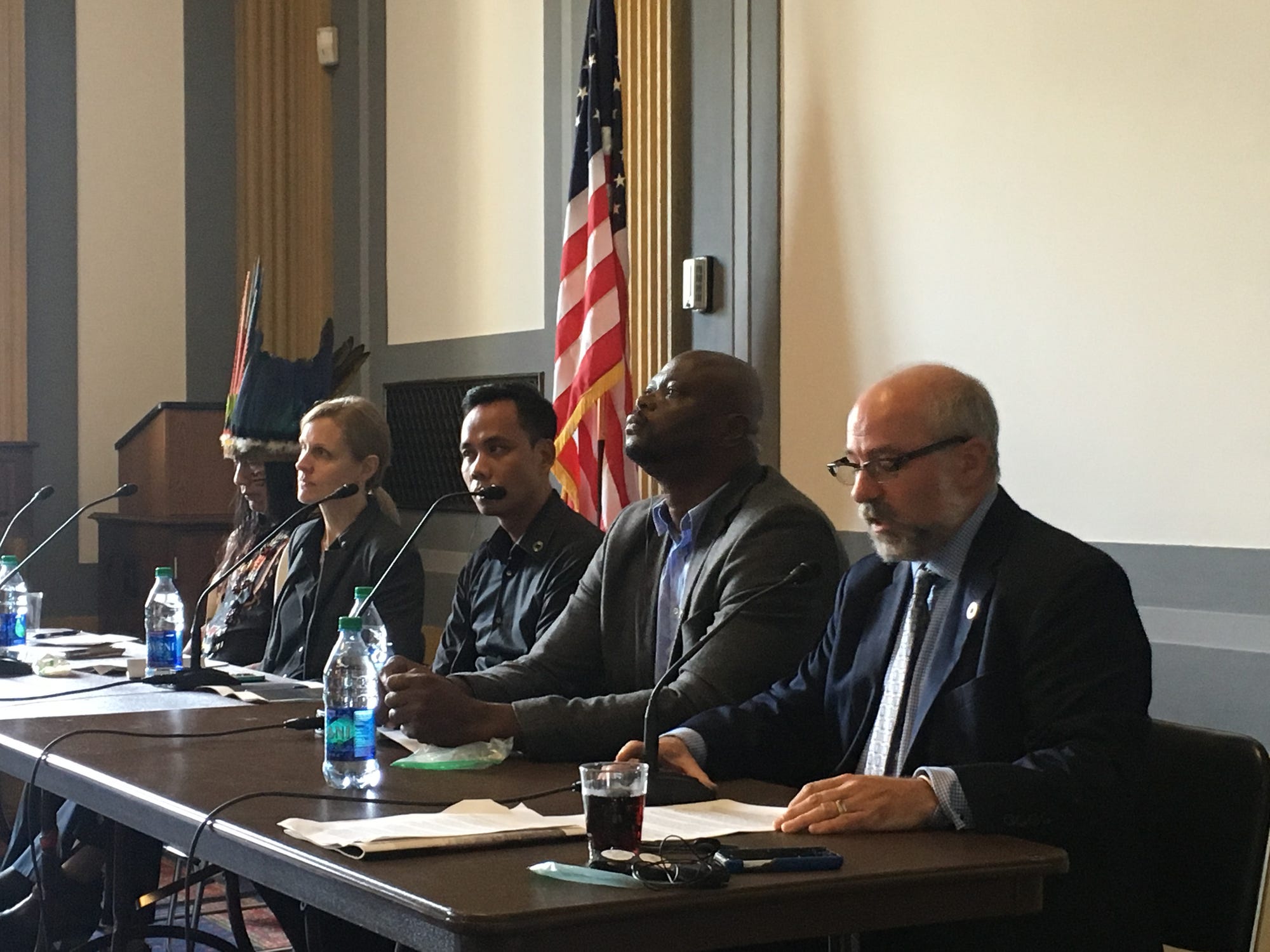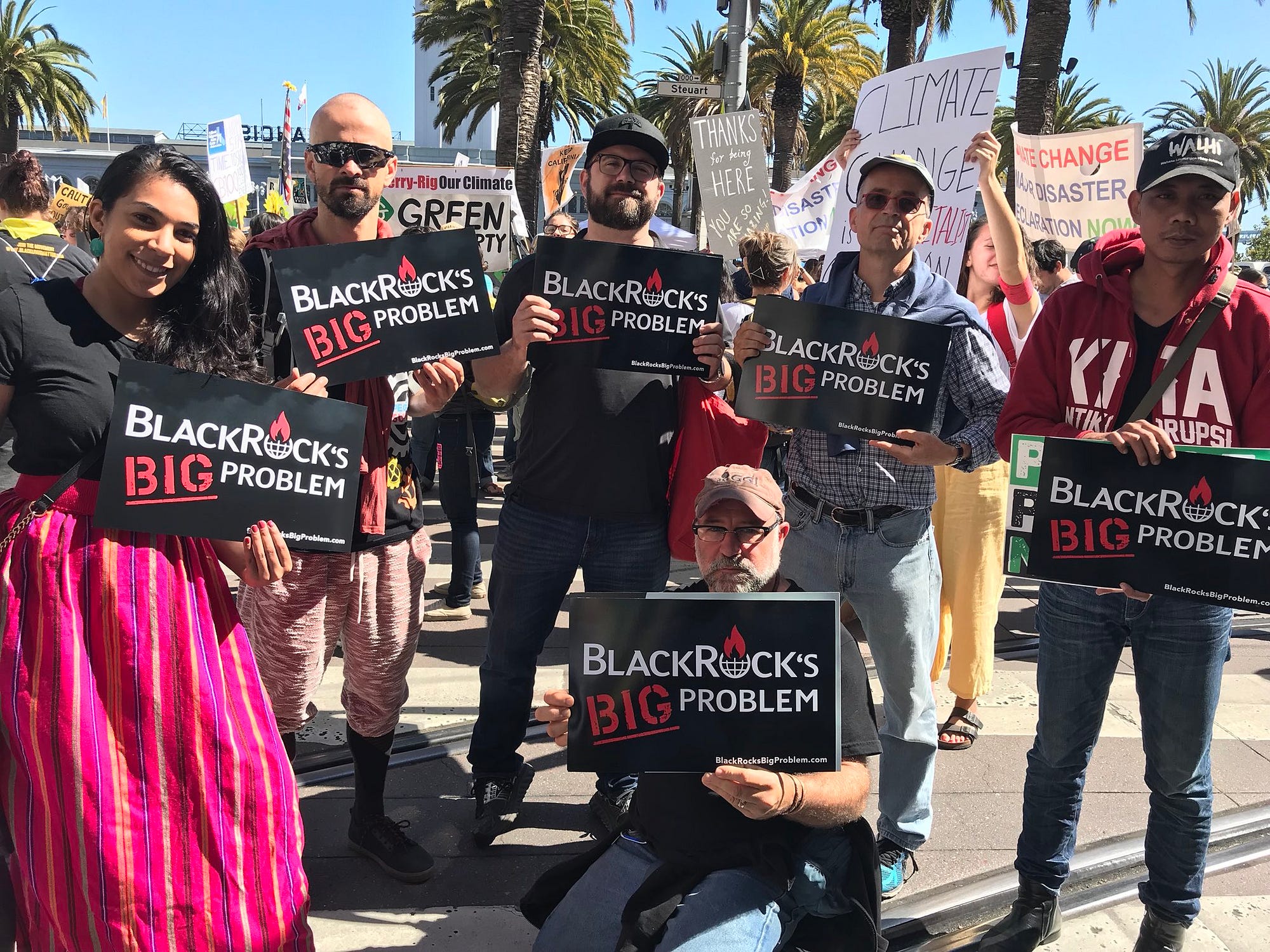- Blog
- Forests
- Land Grabbing, Forests & Finance
- Palm Oil Was Supposed to Help Save the Planet. Instead It Unleashed a Catastrophe: Four Takeaways from this Sunday’s New York Times Article
Palm Oil Was Supposed to Help Save the Planet. Instead It Unleashed a Catastrophe: Four Takeaways from this Sunday’s New York Times Article
by Jeff Conant, senior international forest program manager

Donate Now!
Your contribution will benefit Friends of the Earth.
Stay Informed
Thanks for your interest in Friends of the Earth. You can find information about us and get in touch the following ways:
This past Sunday, the New York Times Magazine ran a terrific in-depth feature titled Palm Oil Was Supposed to Help Save the Planet. Instead It Unleashed a Catastrophe. Staff at Friends of the Earth worked closely with the reporter, ProPublica’s Abrahm Lustgarten, to share background information and analysis, supply contacts in Indonesia and bring him along on public events we hosted at the U.S. Senate and the San Francisco climate summit. Here are four takeaways from the article.
1. Biofuels are not a climate solution:
When biofuels began to be developed at market scale about a decade ago, there was a lot of hope that swapping out fossil fuels for fuels made from plants would provide a silver bullet solution for greening the transportation sector. As Lustgarten writes:
In the mid-2000s, Western nations, led by the United States, began drafting environmental laws that encouraged the use of vegetable oil in fuels — an ambitious move to reduce carbon dioxide and curb global warming. But these laws were drawn up based on an incomplete accounting of the true environmental costs. Despite warnings that the policies could have the opposite of their intended effect, they were implemented anyway, producing what now appears to be a calamity with global consequences …
The tropical rain forests of Indonesia, and in particular the peatland regions of Borneo, have large amounts of carbon trapped within their trees and soil. Slashing and burning the existing forests to make way for oil-palm cultivation had a perverse effect: It released more carbon. A lot more carbon. NASA researchers say the accelerated destruction of Borneo’s forests contributed to the largest single-year global increase in carbon emissions in two millenniums, an explosion that transformed Indonesia into the world’s fourth-largest source of such emissions. Instead of creating a clever technocratic fix to reduce American’s carbon footprint, lawmakers had lit the fuse on a powerful carbon bomb that, as the forests were cleared and burned, produced more carbon than the entire continent of Europe.
That’s why Friends of the Earth opposed the Renewable Fuel Standard back in 2008, and why we continue to reject large-scale biofuels, even as we fight to ramp down fossil fuel production. Those who seek an easy out from the climate disaster that industrial civilization has wrought put a lot of faith in techno-fixes, whether they be biofuels, Biomass with Carbon Capture and Storage (BECCS) or geo-engineering. But it turns out that, like a lot of techno-fixes, swapping fossil fuels for plant-based fuels is merely shuffling deck chairs on the Titanic. If we’re going to reverse the momentum that has devastated the world’s climate, the first and best thing to do, across the board, is for the world’s elites and middle classes to decrease consumption.
2. The palm oil boom has spurred economic growth…mostly for the super-rich and the corporate class:
One of the arguments for ongoing expansion of the palm oil industry is that, like all extractive industries, palm oil brings economic growth. Lustgarten writes, “When the large companies began to expand their timber and palm-planting to Kalimantan, they brought roads, construction and an influx of goods. They also offered jobs.” This is all true. But at the same time, “The unprecedented palm-oil boom, meanwhile, has enriched and emboldened many of the region’s largest corporations, which have begun using their newfound power and wealth to suppress critics, abuse workers and acquire more land to produce oil.”
Indeed, 14 of Indonesia’s 32 billionaires made their billions from palm oil.

Of course, there is no way to generate wealth in this way without causing irreparable damage to ecosystems: “As the money flowed, so did the development. From 2007 to 2014, palm concessions in Kalimantan more than tripled. Bumitama alone was planting roughly 37,000 acres of palm each year. Across Indonesia, trees were cut down at a rate of three acres every minute to make room. Soon, palm plantations extended from Kotawaringin in every direction.”
3. The palm oil industry is built on corruption and violence against land defenders:
Lustgarten does a masterful job of recognizing just how central corruption and violence are to the palm oil industry. As Jocelyn Zuckerman has written in The New Yorker, and as we’ve shown in our campaigns in Guatemala and Liberia — as well as this very recent example of corruption from one of Indonesia’s largest companies — the large-scale plantation development seems to go hand-in-glove with systemic violence and corruption. Lustgarten writes:
The palm companies keep getting stronger. In 2014, Indonesia’s highest judge and three associates were convicted in a huge bribery scandal that journalists have linked to palm land deals in Borneo. A few years later, a Kalimantan governor was caught granting palm concessions to family members, who flipped them back to the companies that paid for his election. Stories of corruption, and threats to keep it quiet, were legion. I was reminded of the threats that Suhadi had described — a series of anonymous phone calls and an intimidating run-in at a market in Jakarta. Suhadi went dark for several weeks as a result — hiding out in a friend’s house outside the city. His fear was justified. In 2015, one of Suhadi’s colleagues was stabbed to death outside a Jakarta nightclub in a case that news reports speculated was linked to his environmental work, and Global Witness has counted at least eight assassinations of Indonesian environmentalists fighting palm oil.
In fact, just after I made a fact-finding mission to Central Kalimantan during the height of the 2015 peatland fires, our guide Gusti Gelambong (mentioned in the Times article) was arrested on false charges and imprisoned for six months.
Sifting through the files, [Gusti Gelambong] retrieved copies of three contracts the company presented to its banks. Each contained a list of signatures — purportedly those of hundreds of villagers, consenting to let the microfinance corporation control their land and represent their views to the bank. Gelambong pointed to the long rows of names. Dozens of these people, he said, couldn’t read or write. When he asked some of them about their names in the document, they told him that they had never seen the paper before and that the signature on it wasn’t theirs. At least six of the signatures were from people who had died before the oil-palm companies arrived.
Gelambong’s life hadn’t been the same since he went public with documents accusing Bumitama of seizing his village’s land. The company accused him of embezzlement, and he was arrested in 2016. He spent six months in the Pangkalan Bun jail before a judge determined that there was no evidence to hold him and dismissed the charges.
As Friends of the Earth International recently pointed out, even palm oil certified as “sustainable” by the Roundtable on Sustainable Palm Oil (RSPO) is generated by a system that has violence at its core. The RSPO, it appears, is on a trajectory of reform — but one thing the RSPO has shown quite vividly is that words on paper are one thing and strong, rapid and consistent action is another. This point is underlined in the Times article by my colleague Zenzi Suhadi, of Walhi, when he says, “It’s all a deception,” “There is no sustainability.”

Yes, this is a discouraging sentiment. But what these comments reflect is an imperative to orient toward a development model predicated not on large-scale extraction for global markets, but on agroecology and agroforestry — both of which are predicated on securing the rights of indigenous peoples to manage their own lands and forests.
4. U.S. policies and U.S. financing are at the heart of the problem:
Lustgarten writes:
“I asked how important the American biofuels mandate has been, given that other countries buy more Indonesian palm oil than Americans do. The answer was unequivocal: It’s what got Indonesian palm off the ground. “The U.S. is not only a market,” said Ruddy Gobel, the chief political adviser to the director. “It also sets the global agenda.” Now, according to the Indonesian development officials, 80 million Indonesians depend economically on palm oil, and nearly half the industry consists of individual landowners like the people in Kotawaringin. “If you pull out biofuel, the whole system will collapse,” said Dono Boestami, the fund’s director.
Of course, not only U.S. and EU biofuel policies have driven the palm oil boom. It’s also the flood of private investment from around the world that followed the initial biofuel policy mandates — investments from Malaysian and Indonesian banks as well as Wall Street firms and even, most likely, your own pension fund.
As Lustgarten reports in the article, when we brought Zenzi Suhadi from Indonesia to Washington to talk to the Senate earlier this year, his message was clear:
Suhadi wanted to tell the lawmakers the same thing he told them in two previous visits to Capitol Hill: that the palm trade, driven by American investment, is slowly killing his country. “It’s important for you to understand that all acts of deforestation in Indonesia start with a signature,” he said. “And more than a little of it starts right here.” …
The connection matters because the Salim Group has benefited from more than $1.5 billion in loans and capital from foreign investors, including the American firms BlackRock and Vanguard, and Salim companies have pledged that their palm oil is not a product of recent deforestation or peatland destruction. Satellite images from 2017 confirmed that the forests on the Sintang plantations were now virtually gone.
If we’re going to turn around the deforestation crisis and its huge contribution to the climate crisis, we need to fundamentally transform capitalism. One way to attack the problem is to force a shift in the business practices of the largest investment firms — the likes of Vanguard and BlackRock, which manage assets in the trillions and have millions of clients worldwide. Despite increasingly loud lip service to sustainability, BlackRock is the largest U.S. investor in the palm oil sector, and the largest investor in climate destruction on earth. That’s why our new campaign addresses both fossil fuels and deforestation — the twin drivers of the climate disaster — by tackling BlackRock’s Big Problem head-on.

BlackRock’s big problem, and U.S. policymakers’ big problem, is all of our big problem. As Lustgarten writes at the end of the Times piece:
“The central problem, of course, is that the goals of Paris — slowing planetary warming just enough to allow humans time to adapt to excruciating and inevitable changes, including flooding coastlines, stronger hurricanes and perpetual famine and drought — are unlikely to ever be achieved without stopping deforestation. The planet’s forests have the potential to sequester as much as a third of the carbon in the air.”
In our view, the single best way for us in the U.S. to do our part is to ramp down our energy use, reduce our consumption of luxury goods — including the junk food and cosmetics that use the bulk of palm oil in the U.S. market — and to take every step we can to defund deforestation. And all of this, of course, begins with taking an eyes-wide-open view of the problems fueling the climate crisis — which is why we’re so pleased to see the issue covered in such depth by this past Sunday’s New York Times.
